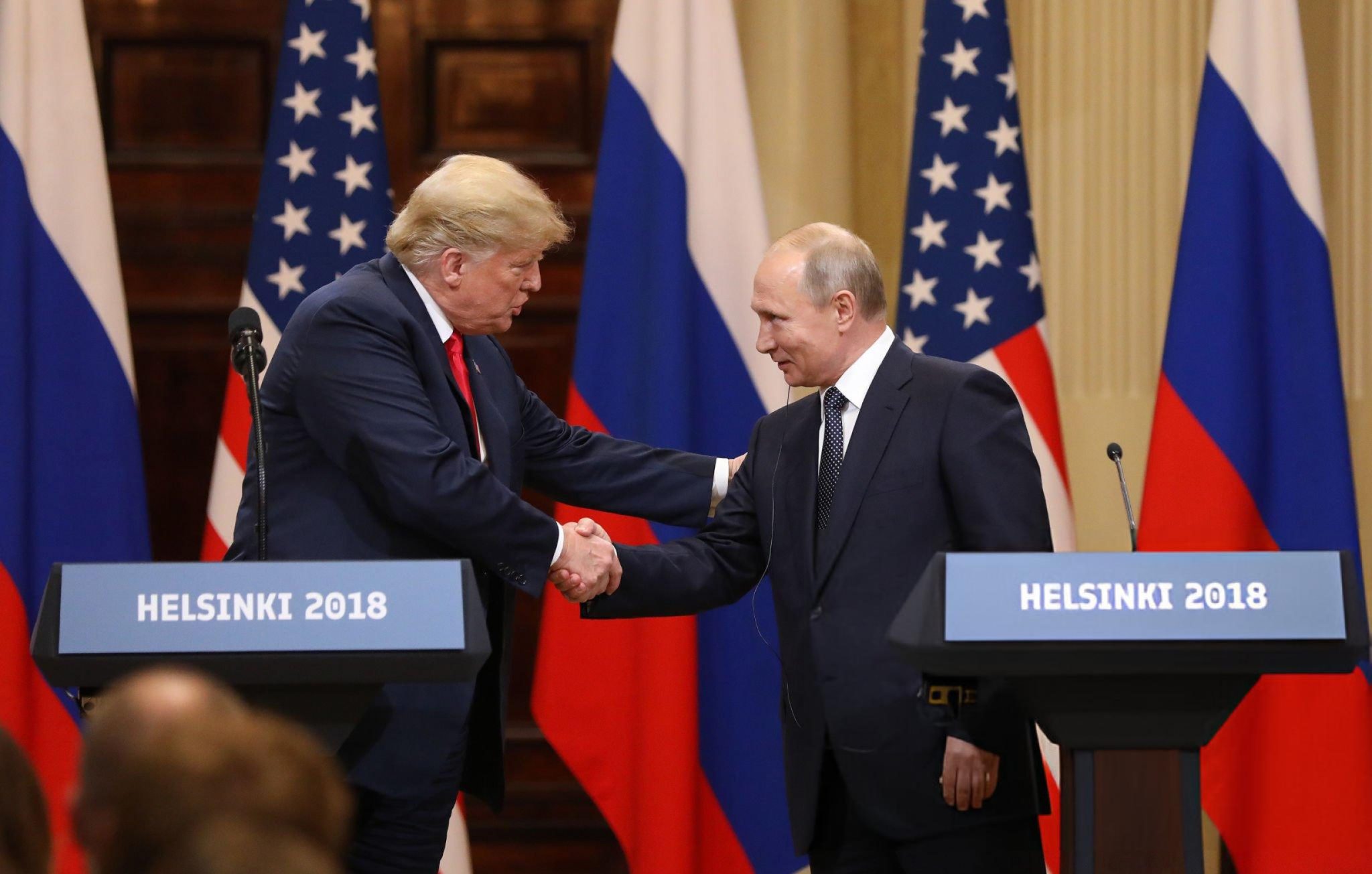Tensions between Washington and Moscow have flared anew after US President Donald Trump launched a scathing attack on Vladimir Putin, declaring the Russian leader has “gone absolutely CRAZY” following Russia’s largest missile and drone assault on Ukraine since the conflict began in 2022.
Taking to social media late Sunday, President Trump, known for his once-warm rapport with the Kremlin, expressed disbelief at Putin’s actions, stating, “I’ve always had a very good relationship with Vladimir Putin of Russia, but something has happened to him. He has gone absolutely CRAZY!”
The US President’s remarks follow a devastating Russian aerial strike on Ukraine, which Ukrainian officials say killed at least 12 civilians and injured dozens more. The onslaught targeted major Ukrainian cities and marked a significant escalation in the three-year-old war.
Trump condemned the Russian president for “needlessly killing a lot of people” and sending “missiles and drones… into Cities in Ukraine, for no reason whatsoever.” He went on to warn that if Putin continues seeking to conquer Ukraine entirely, “it will lead to the downfall of Russia!”
Despite his pointed criticisms of the Kremlin, Trump didn’t spare Ukrainian President Volodymyr Zelensky from rebuke either. “Everything out of his mouth causes problems,” he wrote, adding, “I don’t like it, and it better stop.”
In response, Kremlin spokesman Dmitry Peskov accused the US President of allowing emotions to interfere with diplomacy. Speaking to reporters in Moscow on Monday, Peskov remarked, “We are at a decisive moment that is linked to emotional overloading for everyone and emotional reactions.”
He acknowledged recent peace efforts, stating that Russia appreciated American initiatives, including direct talks — the first of their kind in over three years — which aimed to facilitate a ceasefire.
The US President’s increasingly frustrated tone comes as his administration struggles to break the diplomatic deadlock between Kyiv and Moscow. Trump, who has long championed his ability to negotiate with foreign leaders, vowed on the campaign trail to end the war “within 24 hours” if re-elected.
“I’m not happy with what Putin’s doing,” Trump told reporters on Sunday before departing his New Jersey golf resort. “He’s killing a lot of people. And I don’t know what the hell happened to Putin. I’ve known him a long time, always gotten along with him, but he’s sending rockets into cities and killing people, and I don’t like it at all.”
Though Trump has previously touted Putin’s supposed willingness to negotiate, his patience appears to be wearing thin. Earlier this month, he posted an appeal to Putin on social media to “STOP!” following another deadly barrage in Kyiv.
Last week, Trump and Putin spoke by phone, leading the US President to declare that both Russia and Ukraine would “immediately” begin ceasefire discussions. The announcement came after low-level talks were held in Turkey — the first face-to-face diplomatic engagement between the two sides since 2022.
However, the Kremlin quickly poured cold water on those hopes. On Thursday, it stated that no official talks had been scheduled, dashing expectations of imminent progress.
Meanwhile, NATO allies have moved to ramp up their support for Ukraine. The US and the UK agreed to lift all remaining range restrictions on the use of their supplied weapons. Germany’s Chancellor Friedrich Merz backed Ukraine’s right to defend itself with “long-range fire,” while France’s President Emmanuel Macron called for “massive retaliation” against further Russian aggression, particularly through increased sanctions.
As the war grinds on, Trump’s sharp pivot in rhetoric signals a shifting calculus in Washington’s approach — one that could mark the end of diplomatic niceties and usher in a far more combative chapter in US-Russia relations. Whether such bluster translates into meaningful action remains to be seen, as peace in Eastern Europe continues to hang in the balance.






